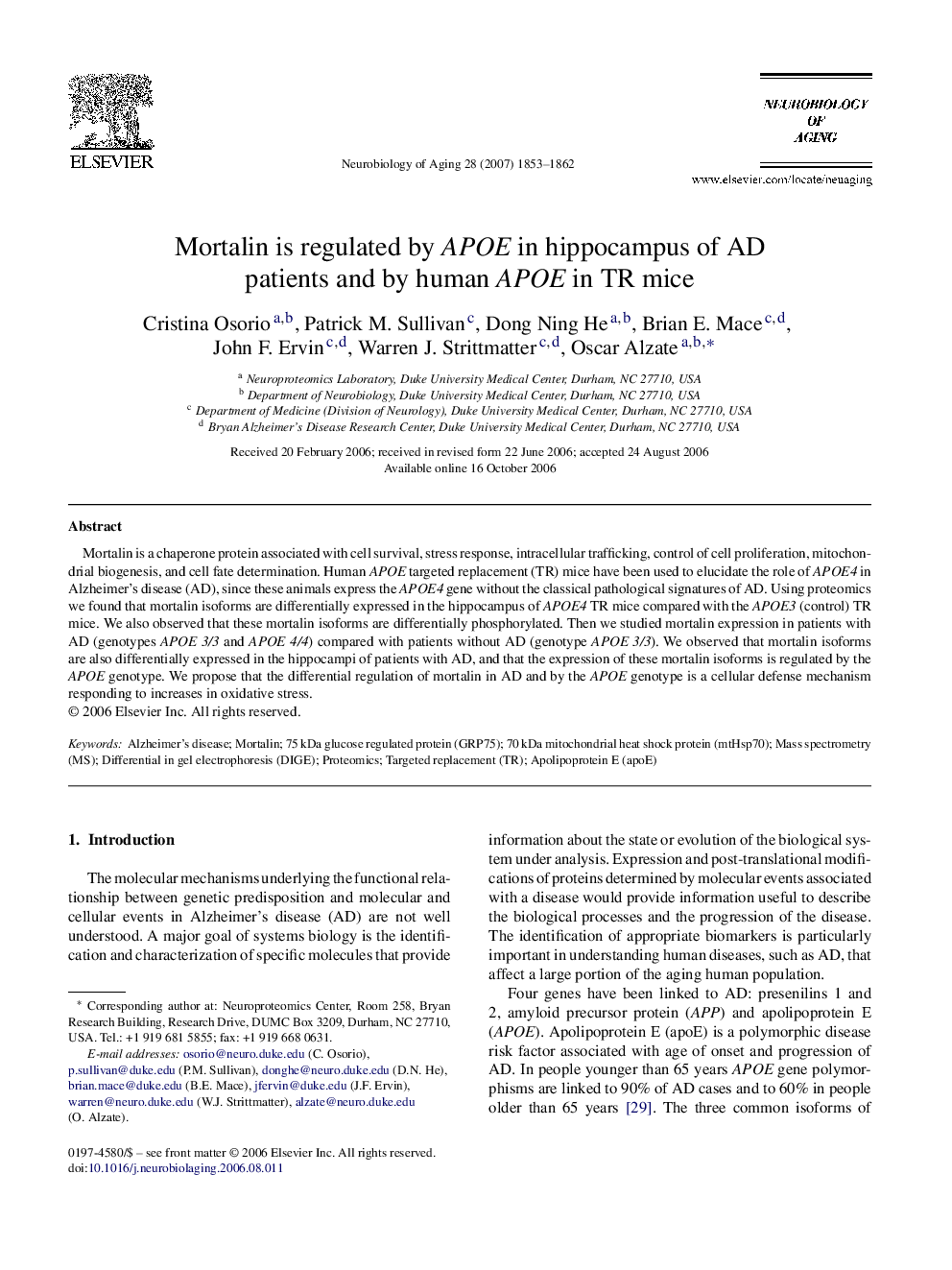| Article ID | Journal | Published Year | Pages | File Type |
|---|---|---|---|---|
| 331344 | Neurobiology of Aging | 2007 | 10 Pages |
Mortalin is a chaperone protein associated with cell survival, stress response, intracellular trafficking, control of cell proliferation, mitochondrial biogenesis, and cell fate determination. Human APOE targeted replacement (TR) mice have been used to elucidate the role of APOE4 in Alzheimer's disease (AD), since these animals express the APOE4 gene without the classical pathological signatures of AD. Using proteomics we found that mortalin isoforms are differentially expressed in the hippocampus of APOE4 TR mice compared with the APOE3 (control) TR mice. We also observed that these mortalin isoforms are differentially phosphorylated. Then we studied mortalin expression in patients with AD (genotypes APOE 3/3 and APOE 4/4) compared with patients without AD (genotype APOE 3/3). We observed that mortalin isoforms are also differentially expressed in the hippocampi of patients with AD, and that the expression of these mortalin isoforms is regulated by the APOE genotype. We propose that the differential regulation of mortalin in AD and by the APOE genotype is a cellular defense mechanism responding to increases in oxidative stress.
